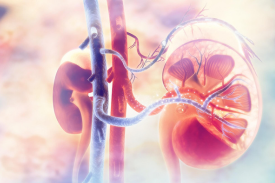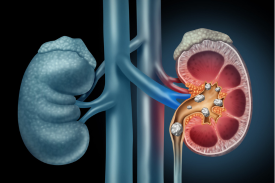Urology is a branch of medicine that focuses on medical conditions of the male and female urinary tract systems. The urologist is a medical professional that specializes in the urinary system. In ancient times, doctors used to examine the urine of a patient for clues about their illness. Today, there is an entire field of medicine that focuses on the health of the urinary system which includes the kidney, bladder, prostate, penis & testis. Below mentioned FAQs broadly describe the urology problems and mention the alarming signals of seeing the urologist.
What Is The Urinary Tract?
The kidneys, ureters, and bladder, are the key components of the urinary tract. The urinary tract is your body’s drainage system for removing urine. Urine is a combination of waste and water. In order for urination to occur normally and without any complications, all body parts in the urinary tract need to work together.
What Does Urologist Do?
A urologist is trained to diagnose and treat problems of the urinary tract. Urologists deal with men and women alike. With women, a urologist deals only with the problems of the urinary tract. For men, however, the urologist can diagnose and treat disorders of the penis and testicles also. They also look after male infertility and sexual disorders.
When Should I See The Urologist?
Your doctor may advise you to visit a urologist if you’re exhibiting symptoms of a Urinary Tract Infection (UTI), difficulty in passing urine, blood in urine, Incontinence (urinary leakage), or Erectile Dysfunction. As these illnesses lie in the scope of a urologist, a general doctor will recommend that you visit one. The urologist also looks after male infertility and sexual problem
What Can I Expect?
The urologist will normally perform a range of tests to determine what the problem is. Imaging tests, such as an ultrasound, CT, MRI scan, can help the urologist to locate the problem and a urine test may be performed to check for bacteria and other signs of disease. If the situation is more serious, a biopsy may be performed; this is traditionally to check for cancer and other disorders. The urologist may also ask you questions about your medical history and carry out a physical examination.
If you’re experiencing a frequent need to urinate pain in passing urine, difficulty in passing urine, blood in urine, pain in your lower back, or trouble sustaining an erection and early ejaculation. You should consult an expert. In order to maintain a healthy urinary tract, urologists recommend that you regularly empty your bladder and drink water instead of caffeine. They also stress the importance of avoiding smoking and maintaining a low-salt diet. By following these simple rules you can prevent a wide range of urological problems. All tumors or cancer of the kidney, urinary bladder, prostate, penis, and testis are also treated by the urologist. Moreover, Most urologists also do kidney transplants.




